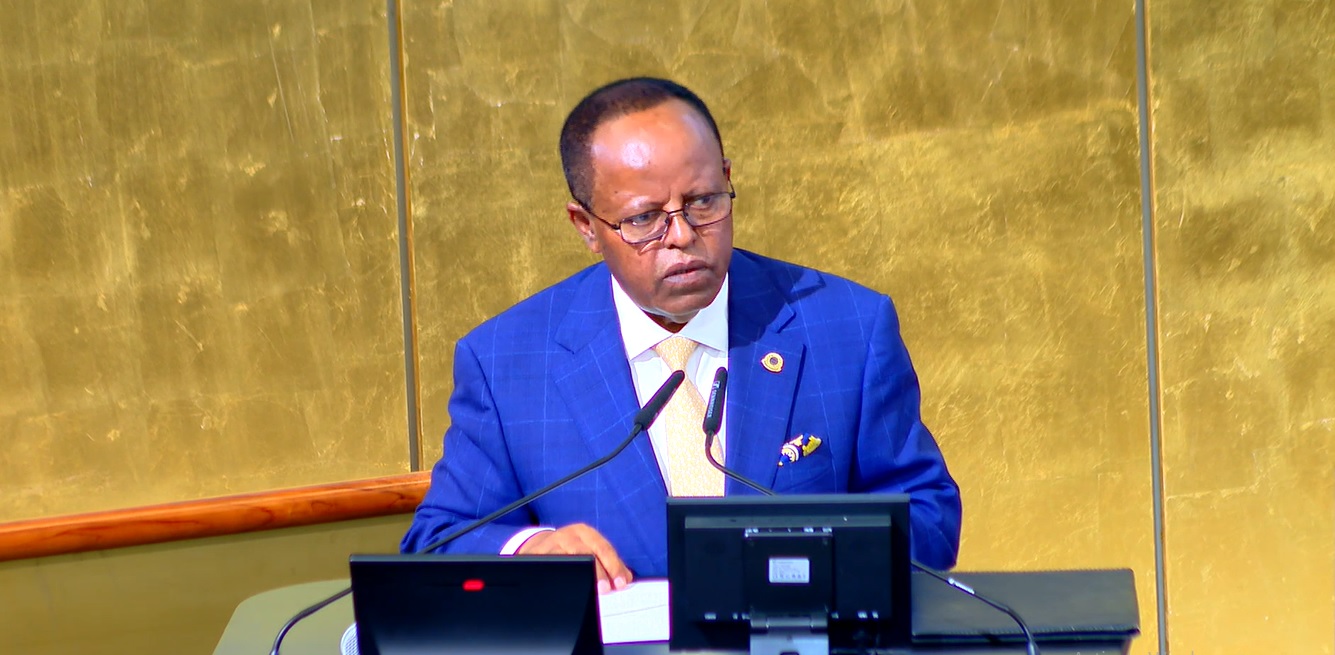Ethiopia’s President Calls for Realizing Self- incentivization to Ensure Sustainable Industrialization in Africa - ENA English
Ethiopia’s President Calls for Realizing Self- incentivization to Ensure Sustainable Industrialization in Africa

Addis Ababa, February 17, 2025 (POA)— President Taye Atske Selassie highlighted the importance of realizing self-incentivization and cultivating robust inter-Africa linkages to ensure a sustainable industrialization in the continent.
Speaking on the opening of 8th Africa Business Forum, President Taye also stressed the need for strengthening sustainable value chains to reduce Africa's reliance on import trade.
The forum, themed “From Potential to Prosperity: Activating Africa’s Regional Value Chains,” attracted prominent leaders, including Presidents John Mahama of Ghana and Duma Boko of Botswana, as well as representatives from the AfCFTA Secretariat, WTO, African Development Bank, Afreximbank, and other partner institutions.
Expanding Africa’s manufacturing capacity and fostering an attractive environment for FDI is necessitated over reliance, President Taye said, believing that external incentives would hamper the sector.
He further highlighted the growing competition for control over global value chains, driven by geopolitical and national security interests.
He emphasized that strengthening regional value chains is crucial for Africa’s meaningful participation in the global economy and its ability to shape its future.
Manufacturing, he noted, is the cornerstone of a successful value chain, but it requires a healthy population, making food sovereignty a key foundation for regional value chains in Africa.
Ethiopia, with its vast livestock resources, particularly alongside Botswana, was hailed as the country is well-positioned to meet the growing beef market demand, both regionally and globally.
Taye further stressed that reliable and affordable energy is vital for the growth of regional value chains.
The president cited Ethiopia’s investments in energy resources, such as the Grand Ethiopian Renaissance Dam (GERD) and the Koysha Hydro Power Dam, contributing to regional energy security and industrial growth through the East African Power Pool.
The African Continental Free Trade Area (AfCFTA) is a key tool for unlocking the continent’s potential, particularly in fostering industrialization and reducing food imports, he indicated.
The President further noted: "Resilient infrastructure, investing in human capital, and embracing digital transformation are essential to Africa’s growth."
United Nations Under-Secretary-General and Executive Secretary of the Economic Commission for Africa (ECA), Claver Gatete, on his part acknowledged Africa’s immense resources despite economic fragmentation.
Gatete echoed the same sentiments on the importance of strengthening Africa’s value chains to drive economic growth and industrialization.
Acknowledging Africa is rich in resources, however, he said its participation in global value chains remains underdeveloped.
The AfCFTA, with its single market of 1.5 billion people and a combined GDP exceeding USD 3 trillion, provides a blueprint for transformation. Therefore, it is imperative to move from vision to action.